Vikki Campion: Sugar hits leading us down the road to ruin
This is not an election campaign where we cut to the quick of the issue, it’s an excursion into make-believe fantasy land where we’re greedily grasping for the closest sugar hit, writes Vikki Campion.

Opinion
Don't miss out on the headlines from Opinion. Followed categories will be added to My News.
This is not an election campaign. This is a pantomime, the most deluded show on prime time. Our poll-obsessed peacocks are acting like they have the solution when the biggest cause of the issues we are facing right now is the government itself.
We have politicians prancing around with sugar-hit policies that are only possible from borrowing money from overseas as they max out the credit card.
We have new regulations that restrict irrigation, which reduces the production of fruit and vegetables; new poultry laws, which reduce the number of eggs; and vegetation laws, which promote the regrowth of shrubs and restrict where you can put cattle in your own country, and then we have the government saying it will do something on groceries.
We have baseload power shut down for climate policy then substituted for foreign-owned intermittent power and politicians telling us electricity is getting cheaper.
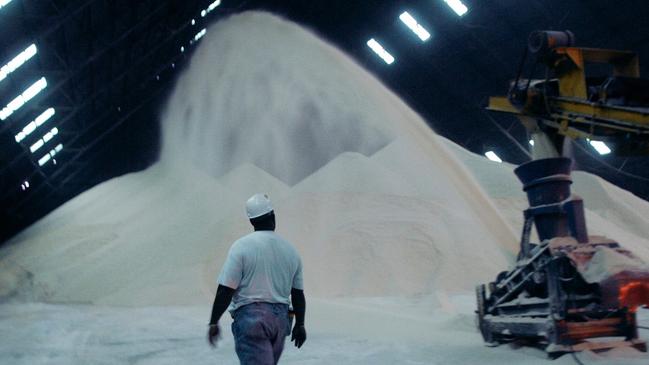
We have housing regulations imposed by local governments that either delay or block development, and state governments impose unwarranted and unneeded construction standards and many other regulatory restrictions. Then the federal government imports too many migrants who need homes and borrows too much money overseas, causing inflation. The biggest restriction on the capacity to build houses is the government itself.
Not one politician wants to stand up and say if you’re going to help housing, you must allow logging of state forests. If you want to help the cost of living you need to allow us to grow food using land and water instead of more restrictions.
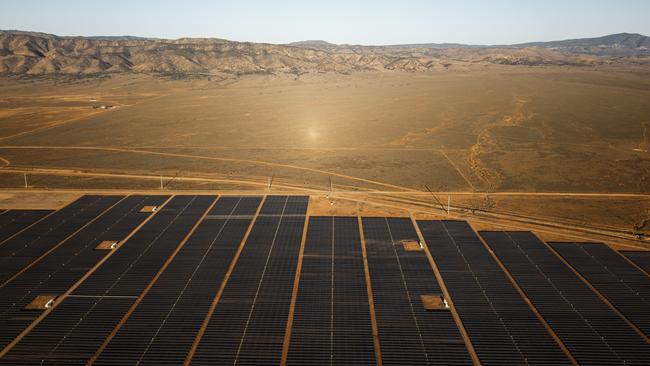
We have a power crisis that has Australia’s standard of living racing to the bottom, and yet the minister responsible tells us that he is reducing power prices.
As recently as a month ago, Chris Bowen posted, “In the last quarter, renewable energy hit a record 46 per cent in the national electricity market.
“We are on track to meet our renewable energy targets. Meeting our targets will secure homes and businesses from energy price spikes.”
Not a falser claim has been made. Power is only getting more expensive, and the businesses that need it to operate now get slugged with an extra charge when demand goes up, and everyone wants to use the air conditioner (see the story below).
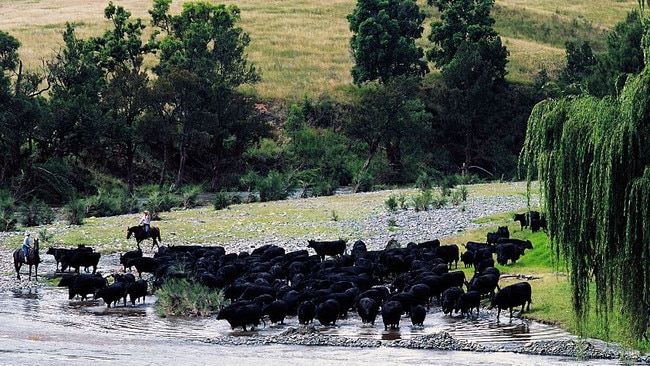
In northern NSW, one property of 7000 acres near Scone is being turned from 4000 head of sheep and 1000 head of cattle into trees. Another 8000-head farm further north is saying goodbye to cattle to grow trees to allow companies to pretend they aren’t polluting. Rinse and repeat across Australia. After your power becomes unreliable and expensive, so can your groceries.
And then we have one side looking at the camera with the confidence of being ahead in the polls.
Yet no poll suggests we will have anything but a chaotic amalgam of disparate voices with pet projects that prefer the wealthy inner-urban over the Western Sydney suburbs or the regional towns.
No one is going to win this election. No matter who believes they can stitch together 76 of the 151 seats in our federal parliament, we all lose because no one will grasp fixes for the problems because they are so terrified of offending the soft votes.
Once, we had major parties willing to put their government on the line to reform the tax system.
They got in because they looked like adults who were strong enough to tackle the problems and had the confidence to tell the people what the problem was and how they would fix it. They were not guided by the will of the wisp but by the problem to be fixed.
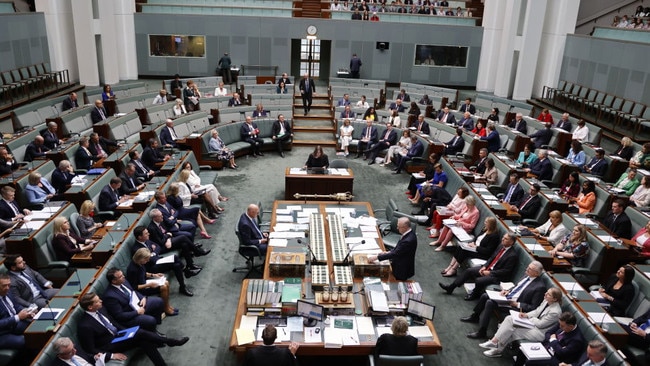
They weren’t so egotistical to think they were divine enough to change the temperature of the globe, but were mired in the mundane, like looking after Australians.
Now, we have politicians who believe they can change the number of cyclones and bushfires but cannot address the price of eggs.
Europe is rearming. China is circumnavigating Australia.
Russia is making inquiries to build an air force base 1500km away.
And we have six submarines that are often non-deployable.
The people who know better, like former army chief General Peter Leahy, are warning we are almost culpable in our lack of defence.
In the meantime we cannot even manufacture all the materials necessary for our own artillery shells in Australia. This is a problem if our sea lanes are cut off.
We cannot make planes or ships, and now we are restricting how much food we produce.
Yes, it’s not an election campaign where we cut down to the quick of the issue and examine the reasons why we are hurting; it’s an excursion into make-believe fantasy land where, like kids on the Easter hunt, we’re all greedily grasping for the closest sugar hit.
THEY’RE THICK AS A BRICK TO THINK RENEWABLES DON’T KILL BUSINESS
A brick manufacturer in a small town in northwest NSW was stunned when they opened their March energy bills to find, on top of their environmental charges, an additional fee for summer moments when the grid’s wind and solar farms unsurprisingly couldn’t generate enough electricity to meet demand.
Called the Reliability and Emergency Reserve Trader (RERT) charge, it’s really a hidden grid failure tax on businesses whose power bills are soaring into six figures a year, sending the cost of housing materials further up. The RERT, as explained by energy retailers like Origin, kicks in when the Australian Energy Market Operator decides electricity supply is falling short of demand.
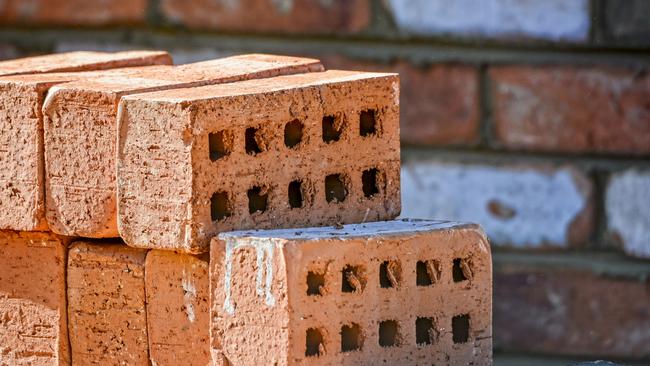
Surely Chris Bowen told us this problem was solved by intermittent power, not created?
AEMO reckons it’s not much money to pay and they don’t do it often – in which case, why don’t they pay it? They are the ones who have allowed the grid to become as unstable and expensive as it has.
AEMO says they activate emergency reserves either by paying generators to ramp up production or compensating large users to reduce consumption with the costs then passed on to businesses as a “regulated charge,” regardless of whether they contributed to the shortfall.
For a brick manufacturer in Gunnedah, it’s another hand in their wallet. With the grid relying on 46 per cent intermittent renewable energy, businesses like brick manufacturers, whose products are essential for building homes, are left bearing the cost of an increasingly unreliable energy system which then gets pushed on to the cost of new houses.
As the grid struggles to balance intermittent renewables with rising demand, the RERT charge is yet another brick to the head, a stark reminder the quest for Net Zero 2050 comes with even more costs for those who cannot afford to pay them.
LIFTER
The British Supreme Court. Finally someone can define what a woman is.
LEANER
Every clown politician whose team has AI’d themselves as a cringe-worthy doll.





